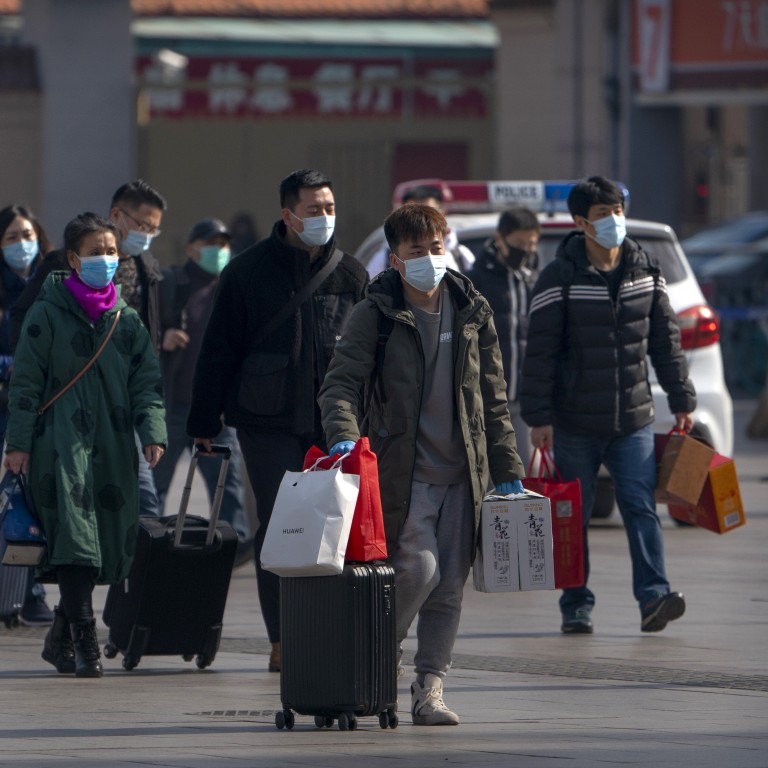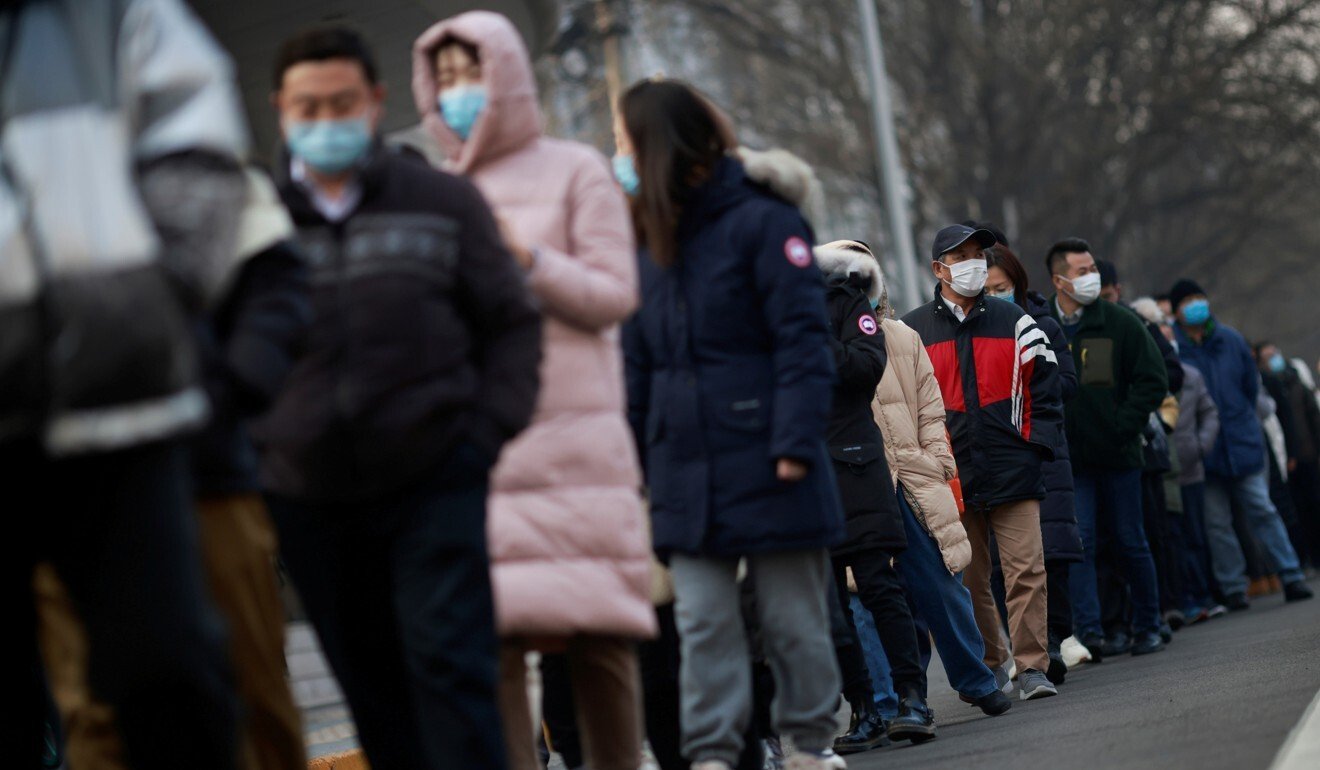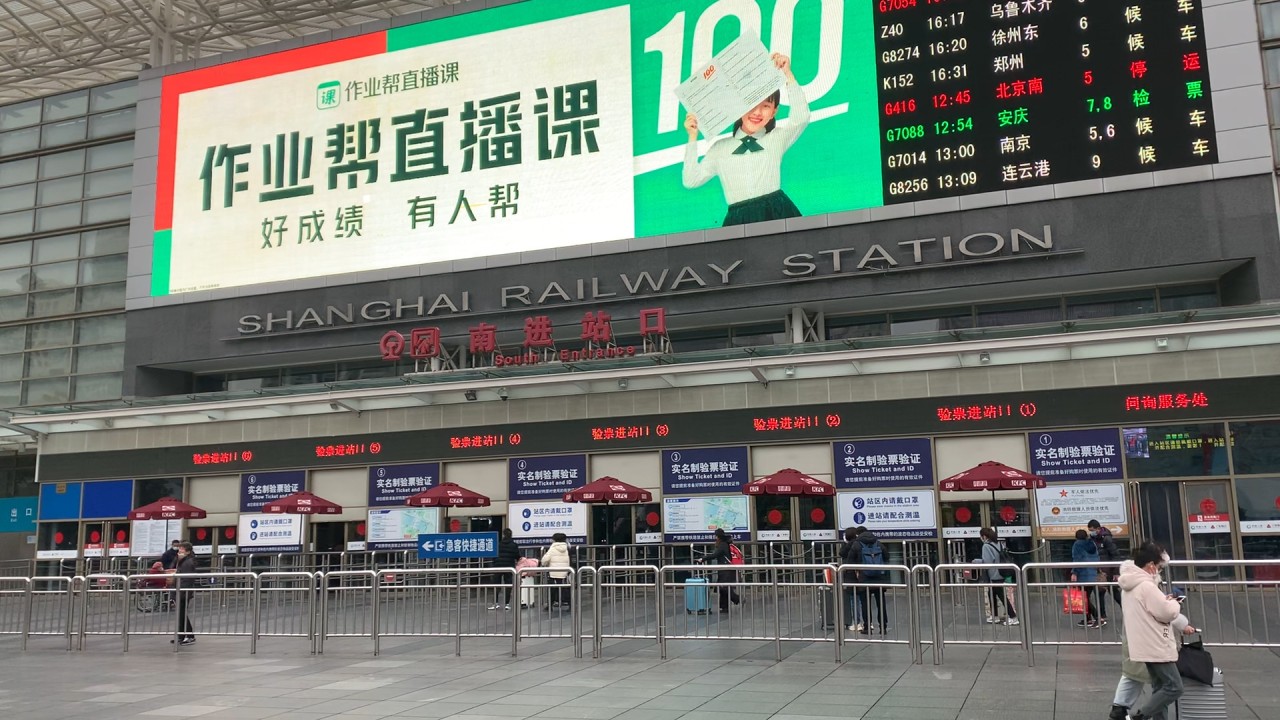
Chinese turn to on-call coronavirus testing during holiday travel rush
- Tests are compulsory for many travellers to rural areas, and that could be a boon for private firms offering personalised services
- Swab tests at home or work can be booked on mobile apps to avoid long waits at test centres or hospitals
China is one of only a few countries that offer such house-call services, which can be booked on mobile phone apps and allow users to avoid long waits in crowded queues at test centres or hospitals, sometimes outside in the cold.

Ou Yang, who works in the auditing industry in southern Fujian province, said she opted for a 358 yuan (US$56) on-call test after she initially booked a spot at a local hospital.
“It’s much more expensive than normal tests … but it’s worth it,” said Ou, whose sample was collected at her workplace. “I’d gone to the hospital and queued up, but there were so many people and they were standing really close to one another.”
The cost is well above the 80 yuan charge for on-site tests at clinics, hospitals and third-party testing centres, although the price of on-call tests done by private testers can fall to as little as about 100 yuan a person for companies that arrange group tests for staff.
Other premium services include emergency testing, faster turnaround time, and deals bundled with other genetic tests.
China’s coronavirus testing ‘overkill’ gives economy a shot in the arm, with huge windfall for industry
Demand for coronavirus testing in general has picked up during the so-called Spring Festival travel rush, when millions return to their home provinces to celebrate the Lunar New Year.
Some 600 million tests could be administered on travellers to rural areas alone during the 40-day holiday travel season, according to one private estimate, offering a potential bounty for test providers.
People travelling across provinces to rural areas in particular must test negative before leaving or on arrival, with authorities worried about infections in regions where the ability to identify and trace transmissions is relatively weak. On arrival, returnees face up to two more rounds of tests.

02:45
Coronavirus pandemic puts the brakes on China’s usual Lunar New Year travel rush
Hangzhou-based Weimai Technology, a start-up running an online booking platform since January for on-call tests offered by third-party companies, said its platform was receiving well over 10,000 orders a day.
Most were cheaper bulk orders by companies that bundled sample-taking for 20-50 people, but the platform was also receiving a small number of individual orders, a Weimai representative said.
The demand has also attracted some private health care providers that arrange nurses to collect samples at homes or workplaces and deliver them to testing labs.
The premium services, still a niche industry compared to ordinary on-site tests, are starting to draw the attention of authorities.
A Beijing health official said on Tuesday that agencies offering personalised services should give a detailed breakdown of prices.
An advertisement for an on-call test in Beijing on the Alipay mobile app states: “80 yuan testing fee, 208 yuan service fee.” Alipay is owned by Ant Group, an affiliate of Alibaba, which owns the South China Morning Post.
A guideline issued on Monday by the National Health Commission, China’s health authority, encourages test providers to offer the option of cheaper mixed-sample tests, where multiple samples are processed together.
Demand for testing has also become a profit growth driver for bigger listed Chinese companies such as Guangzhou Kingmed Diagnostics Group, which had conducted over 30 million nucleic acid tests as of the end of December.
Dian Diagnostics Group Co and BGI Genomics Co, which develop testing kits as well as offer testing services, also said Covid-19 related demand was the major reason for expected surges in their 2020 net profit.

